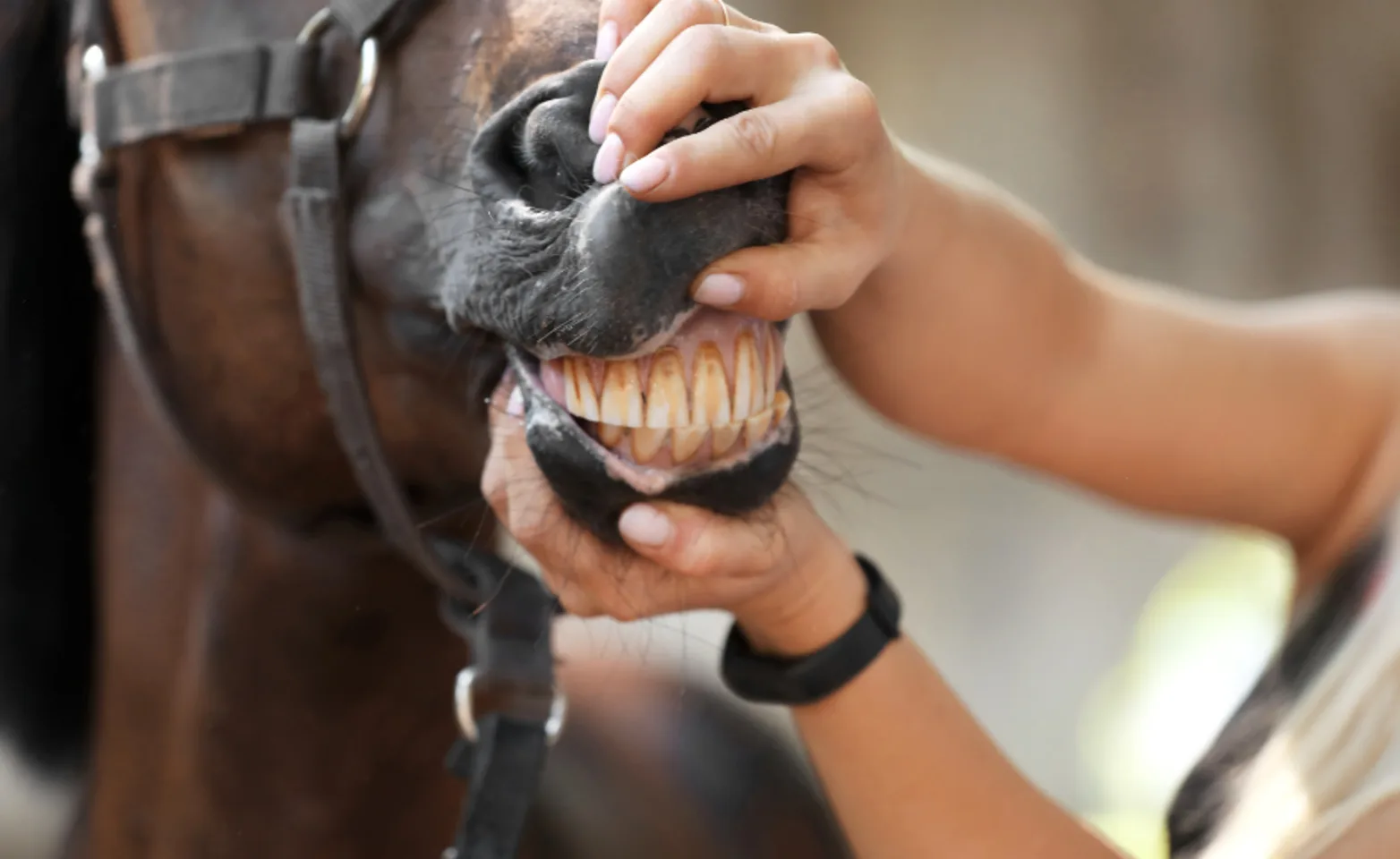Russell Equine Veterinary Service

At Russell Equine we use the latest in HDE float technology to ensure that we can do the best job with the least discomfort for your horse. There are many conditions that can affect your horse's mouth. Routine inspection of your horse's eating habits and bite responsiveness is a good start, but an annual inspection can often diagnose and treat issues that may not be apparent.
We have included routine dentistry in our Herd Health Management Packages to take the worry out of remembering.
How do I know if my horse’s teeth need floating?
Like people, each horse is an individual. Some problems that you may notice when your horse needs its teeth floated are:
Your horse may start to drop more than a normal amount of grain when eating.
You may find small balled up hay remnants in the stall from incomplete chewing.
Your horse may move its head upward in an unusual manner when chewing, or chew preferentially on one side of its mouth.
There may be a "rotten" smell in your horse's mouth- often a sign of a root abscess or gum infection.
Your horse is more sensitive/resistant to the bit when riding, or your horse's behavior has changed when pressure is put on the bit (throwing of the head, grabbing of bit, bucking/rearing).
Your horse is losing weight or is a hard keeper.
What are wolf teeth? Should they be removed?
During the evolution of the horse into a plains grazer, wolf teeth have changed from the size of the rest of the horse's molars to the vestigial teeth that they are today. Erupting at between 6 and 12 months of age, wolf teeth are said to be present in 70% of horses- occurring most commonly in the upper tooth arcades just in front of the first premolar (at the arrows.) However, they can occasionally be present on the bottom arcade as well.
Wolf teeth are generally removed in riding horses due to their tendency to cause the horse irritation when the bit rubs against them. Common signs of this are head throwing or poor response to bit pressure (bucking/rearing/intolerance to pressure.)
In some horses, the wolf teeth may be "blind," ie have not erupted through the gum. In these horses, the irritation from the bit can still be present although the wolf tooth may not have broken through the gum to become visible.

